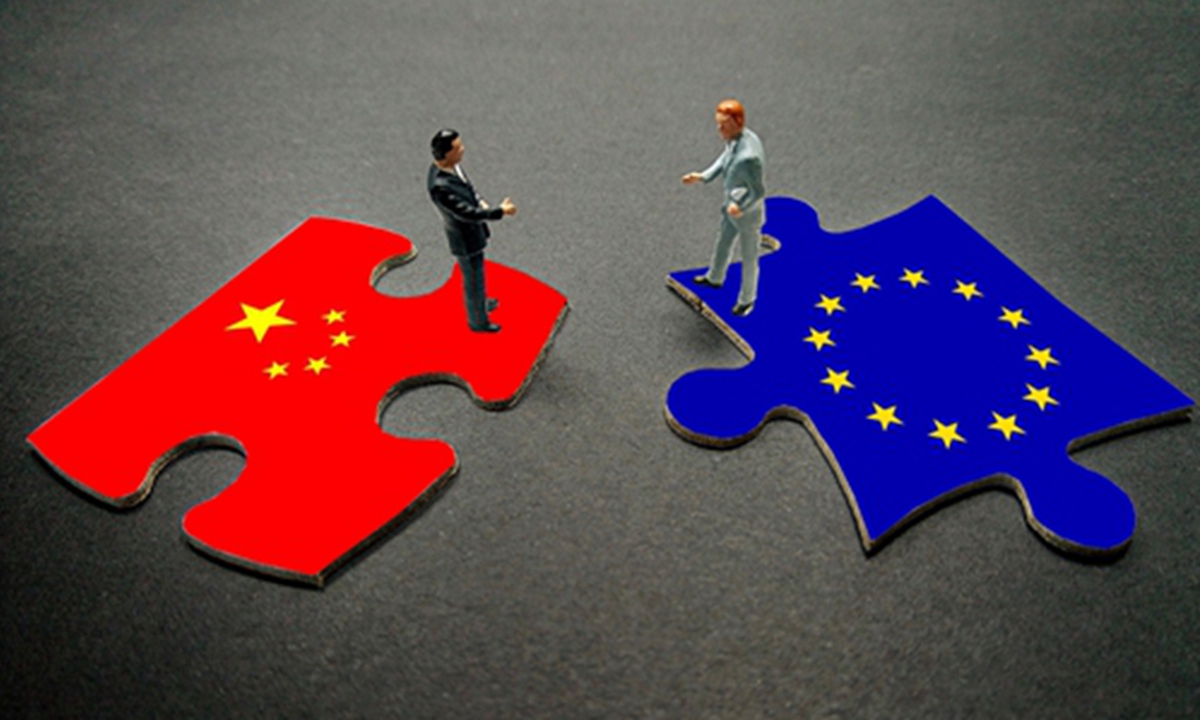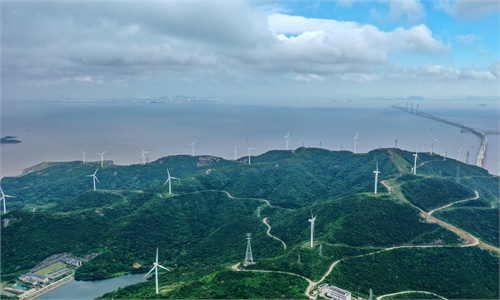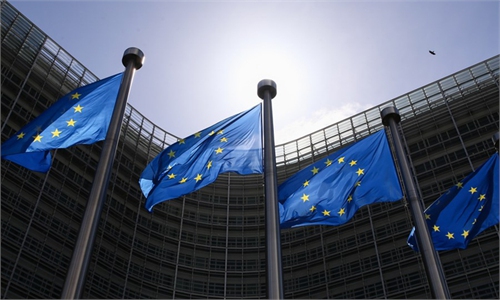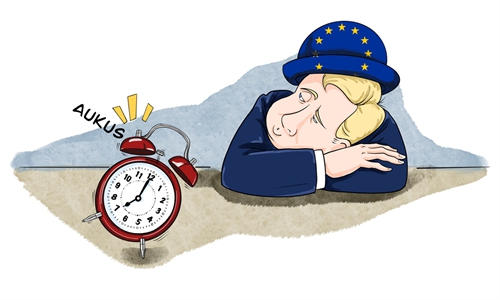If China is not independent in technology, does it wish to be oppressed and exploited by the US?: Global Times editorial

Photo: VCG
The European Union Chamber of Commerce in China said in its report European Business in China Position Paper 2021/2022, released on Thursday, that China should abandon a high-degree self-sufficiency strategy and that its dual circulation deviates "from the spirit of the 1970s reforms." The report said China will encounter "a decrease in foreign direct investment, a significant misallocation of resources and growing international push-back," adding that China will see "a deceleration of innovation capability" and "a direct impact on per capita GDP growth."It has to be pointed out that the report just paid lip service without putting itself in China's shoes. We understand that the chamber intends to advocate for the greater interests of EU businesses. Yet, this report is way too selfish. Objectively, it is to fool China into abandoning its advantages and strategy in the face of pressure from the US and its major allies and handing China's destiny to external powers.
As is known to all, the previous US government launched a crazy strategy of "decoupling" from China's high technologies from Huawei and other Chinese high-tech firms. The "entity list" of the US Department of Commerce and the names of the "Chinese military companies" released by the Department of Defense have become veritable blacklists to crack down China's economic development. Furthermore, many Chinese experts and scholars, who work on cutting-edge science and technology, have basically been banned from going to the US for exchanges. And even Chinese students are not allowed to enroll in sensitive programs at US universities and departments. American scholars who work part-time in China face the risks of being accused of being "criminals."
Under such circumstances, can China possibly wait for the US to change its mind by showing the willingness to "give in" and to "remain unprotected"? The US has already regarded China as its top strategic competitor. The Biden administration has fully taken over his Republican predecessor's decoupling approach and is even promoting the strategy. Can we bet on Washington's "kindness" for China's future? Would France, which has just been stabbed in the back by the US, and its European partners, believe that the US decoupling strategy is just mocking China?
China must pursue a high-level self-reliance and realize breakthroughs in several key technologies. We do not want to have all the technologies to maintain a huge economy but China must reach the forefront of human technology and completely break the situation where the US can impose a key technology blockades on China. China's such capabilities will be like "nuclear deterrence," which will prevent the US from implementing "nuclear-bomb-level" blackmail on China's key technologies, thereby placing back to commerce what belongs to commerce, and to market what belongs to markets.
Now the US is ganging up with some allies to build a supply chain that excludes China. Only by unfolding its strong self-reliance and innovation, as well as reaching breakthroughs, can China develop a strong ability to fight back against the blockade and disintegrate the US' will to decouple. Before reaching to that point, China must not stop.
China will not pursue a winner-takes-all approach or leave others with no way to go when it walks on its own path. China's dual circulation is a pragmatic strategy based on reality and in response to changes. It is not a declaration to close the country's doors. China places great emphasis on achieving a higher level of openness to the world and is determined to give foreign companies the same treatment as Chinese ones. China announced last week that it has applied to join the Comprehensive and Progressive Agreement for Trans-Pacific Partnership. If China wants to close its door, this shows just the contrary.
China is not strategically vigilant about the EU. There are ideological frictions between both sides and the China-EU investment agreement has encountered some obstacles in Europe, but we are still confident that China-EU cooperation will continue to advance. A high-level self-reliance is not directed at Europe, even if it is cautious. EU companies should also have sufficient confidence in developing their businesses in China under market rules. And, if specific frictions arise, both sides should be able to resolve their following laws and rules.
The US can take France's submarine deal from Australia regardless of Paris's interests and feelings, but Europeans should never have to worry whether such brutal moves will take place in China. China's dual circulation will give European companies a great number of opportunities. The chamber should encourage its members to further develop in the Chinese market and enjoy a win-win future with China.



